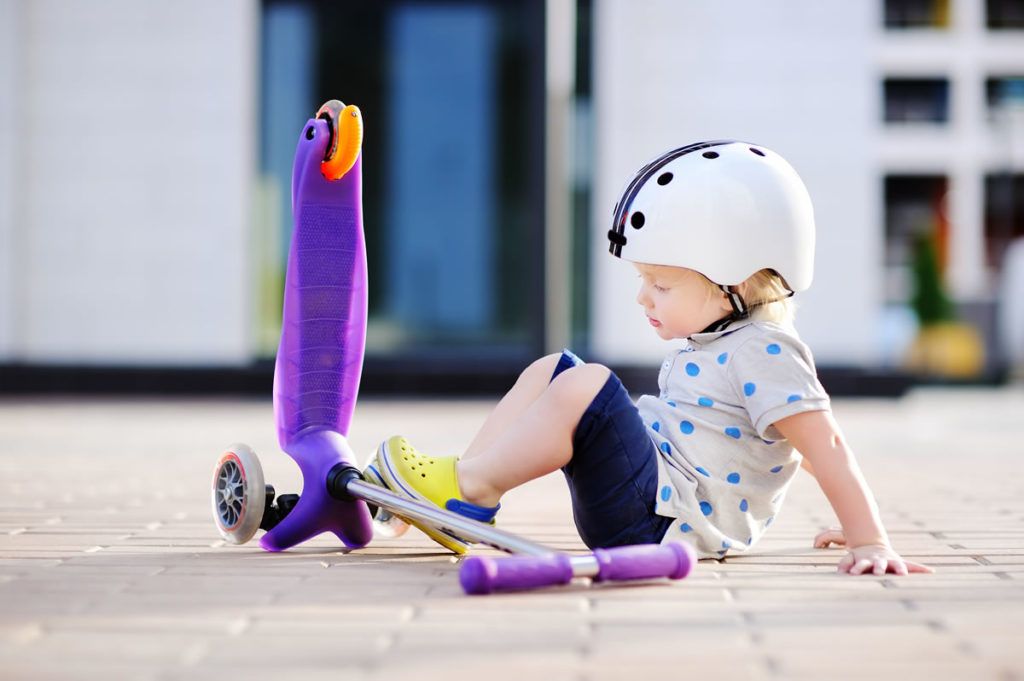Children are born with an innate sense of confidence and with a sense of wonder and a desire to experiment and try. As parents, we must learn to preserve and enhance that trust within them, even when the world seems to conspire against it.
For example, let’s talk about snow. Snow is a joy that is worth preserving, it is a joy that almost all young children have (many because they have not even been lucky enough to see it) and that they often lose early. As time goes by, illusions such as snow are diluted, and it is not surprising that we already find boys and girls of 3 or 4 years old who already have qualms about touching it when they have the opportunity.
But how can we recognize that possible loss of joy? Well, it is actually very simple, because the symptoms of this loss of joy usually come in the form of phrases that we have all heard or pronounced at some point: “I can’t do that”, “I’m afraid” … etc. This loss of joy is something that happens to all of us at some point, but what role do parents have in that loss of joy on the part of the little ones?
The role of parents in preserving joy
- A general lack of example
First of all, we should ask ourselves the following questions: “When did they lose it? Where have they left it? Why?” Parents often fail in three ways in our responsibility to seek to preserve the joy of children. First in our worries and excess of various occupations, but we also fail ourselves when it comes to experiencing new things and manifesting the joy that comes from them, which undoubtedly results in a lack of example when celebrating the life .
- Criticism instead of encouragement and motivation
Second, we often fail in our little involvement with the most important things of the little ones , or in a lack of praise and motivation. That encouragement they need can be verbal or, better yet, it can be expressed without words, just doing and trying things as a family, in company.

When the basic confidence to try things is replaced with fear of failure, a child’s outgoing joy is replaced by recurring doubt. Children, like the most fragile flowers, can be crushed very easily with the fingers of criticism and comparative judgment.
By criticizing instead of praising, we can create fearful situations and we erase the continuous desire to try things again and again . For example, a child believes that he is conducting an important experiment by pouring milk into his soup and adults get excited and think that the world is over with our screaming or our stress. A child takes off his shoes to see how the fresh grass feels on his skin and we tell him that it is silly and that he is going to get dirty. A child caresses a large and friendly dog on the head and we say that he must be careful because he could bite.
- Bad comparisons or excessive caution
We often compare our children to each other or to other children , which can make them feel inferior. Let’s say a child tries to run a race or improve on the piano and lights up with the joy of trying many times until adults say: “That boy in your class says he learns very quickly and that he already does it very well.” or “I wonder how the neighbor’s daughter is already so good with the piano, if she started with you.” If a four-year-old child wants to climb bars, climb a small ladder or jump into the pool and we say: “No, no, you will fall and hurt yourself” … we will be telling them that they should not do or try things for themselves.
Who should learn from whom?
As adults we tend to take many things for granted and one of them is the idea that the little ones should learn everything from us. But what if it wasn’t? If we think about it, it is children who enjoy spontaneity , trying new things, trusting … and we who should be learning those same things and not teaching as they should (not). We should be following and encouraging their leadership and not preaching our own, stemming from lost skills. If we acted with more reliance on everything young children know, we could bring that childhood joy back into our adult lives .
To reverse this process, when we hear a child say things like: “Oh, I’m not good at that”, “I can’t do it alone”, “I don’t want to try it because I’ve never done it before” … We can answer them with positive phrases like: “Don’t be shy, don’t be afraid, come on, try it …”. But before scolding a child for not doing or for doing something, let’s think carefully about how our own role could have influenced it . It is not that these types of fears are not natural, because they are, but many times we create fear without realizing it and then we criticize that they have those same fears, which can make the situation even worse.

There are two basic types of fears in the world: fear of getting hurt and fear of failure, both of which occur in all facets of life. We fear physical, mental, emotional and social failure… and in turn we fear being hurt physically, emotionally and socially . Children, on the other hand, are not born with either of these two fears, but development and learning are the ones that make way for these negative feelings and that loss of innocent and initial joy. This tells us that the role of parents in parenting is not always to teach, but sometimes it is also to respect and take care of the good things that we already have, which we can achieve always keeping these points in mind:
- We should encourage children to try and try new things or not stop doing old ones.
- Understand the need for encouragement at all times. When we can see failure as a form of learning , we free the mind and spirit. What a lesson!
- The encouragement of parents must always prevail over the discouragement of third parties.
- The encouragement of parents can always counteract teasing or judgments from colleagues or friends. At home you should always replace the negative with the positive.
- We must understand the delicacy of a child’s confidence and his desire to try everything. Of course, a healthy respect for real danger is important , but it has nothing to do with the excessive fear of physical harm that many children end up developing out of excess caution.











































































































